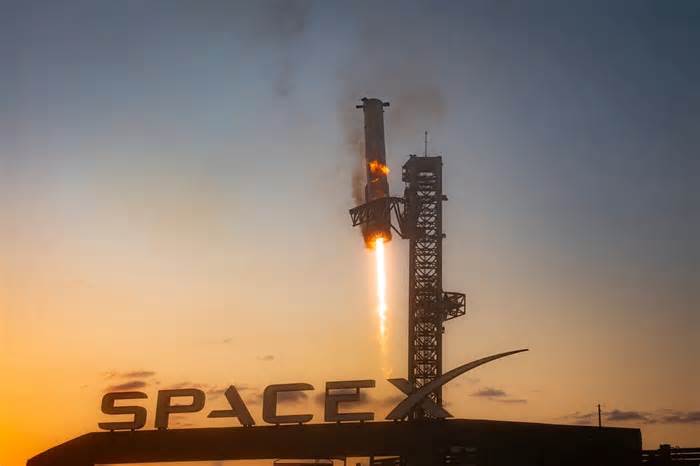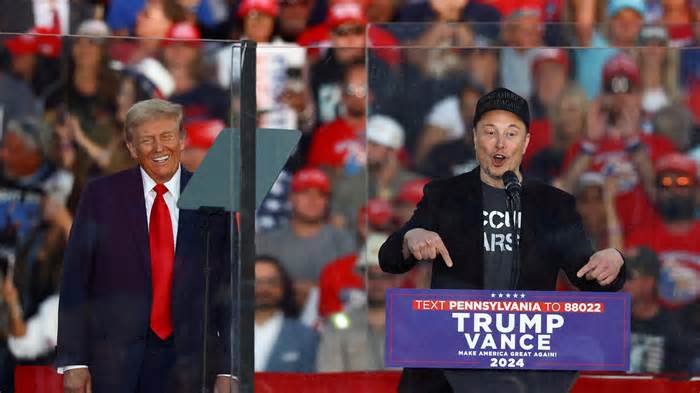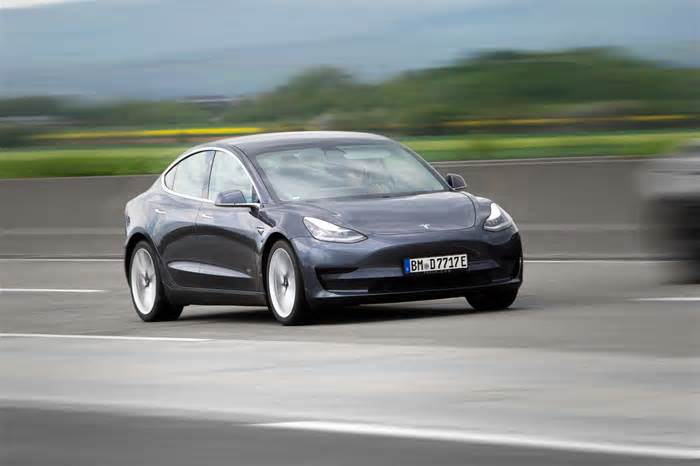
Starlink and Telcos debate level playing field between telecom and satcom in TRAI consultation
- by MediaNama
- Nov 11, 2024
- 0 Comments
- 0 Likes Flag 0 Of 5

Content copied!
Disclaimer: This content generated by AI & may have errors or hallucinations. Edit before use. Read our Terms of use
Bharti Airtel flagged the need for TRAI to consider the issue of a level playing field between terrestrial and satellite communication services when coming up with recommendations about the terms and conditions for Satcom authorisation. “Satcom services have been there for more than 2-3 decades now. However, now with the advancement in technology, these services are increasingly becoming substitutable to terrestrial services because of higher capacities and better latencies,” Airtel’s Chief Regulatory Officer Rahul Vatts said during TRAI’s open house discussion on Satcom authorisation.
Vatts mentioned that some satcom operators today are positioning themselves as a viable alternative to traditional satcom service providers. This is especially true for urban and suburban areas where competition between telecom companies is already very fierce, he added. He explained that while it is important to encourage the satcom market, “it is equally important to safeguard the significant investments made to the tune of lakhs of crores of rupees by terrestrial operators over the past three decades”.
The growing concern around level playing field:
In its submission to the regulator on the satcom authorisation consultation, Airtel mentioned that TRAI and the Department of Telecommunication (DoT) could address this concern by spectrum pricing through a pricing model (based on adjusted gross revenue or per
MHz-based charges etc). At the same time, Airtel adds that the regulator should price the “traditional use cases of satellite services for the traditional market” such as satcom services for rural and remote areas, and for government agencies, including defence, disaster recovery, cellular backup in rural and remote areas, differently. It suggests that TRAI could remove spectrum charges for such services. Notably, Airtel’s satcom partner OneWeb was reportedly planning to showcase these traditional use cases of satcom earlier this year.
Airtel isn’t the only company to express concern about a level playing field; fellow telcos Vodafone Idea Reliance Jio has also discussed this in its submissions to TRAI. Adding to Vatts point about traditional services, President and Chief of Public Policy & Regulatory of Reliance Retail, Ravi Gandhi mentioned that the user terminals for such services were not affordable earlier; they also had very low capacity compared to terrestrial services which caused these services to have high tariffs. As such, they were not competing with terrestrial services. “High costs have restricted these services to areas like CUG [closed user group], VPN, defence where cost was not a primary concern,” Gandhi explained.
Differential pricing based on preferred market:
Addressing Airtel’s point about different spectrum pricing for different uses, Parnil Urdhwareshe representing Starlink pushed back, saying that Starlink does not differentiate between unconnected businesses and individuals.
“An individual satellite operator’s preference with respect to what category of users they’d like to serve or what market they would like to address is just that it is a preference. As long as they use spectrum in the same shared way. We think the level playing field must be one that ensures the same pricing rules for all satellite operators,” he said with great emphasis.
“So I really don’t know what such a passionate, emotional outburst [is] for?” Vatts from Airtel said, addressing Urdhwareshe and others who pushed back against the demand for differential pricing of spectrum. He explained that Airtel is only asking for a level playing field.
Is it weird to want lower spectrum charges for satcom?
In its submission to TRAI, Starlink suggested that the regulator should keep spectrum usage charges for satcom services at 1% of a company’s Adjusted Gross Revenue. The company argues that this low charge would allow satcom players to provide affordable services to underserved areas. Referencing this, Gandhi from Reliance Retail said that such a demand was ‘weird’.
“This is a very very weird argument which is coming that since it we will provide in the same market we will compete in the same area with the same consumers and use the similar spectrum but we will pay, we will not pay anything we want free of cost spectrum we will only pay half a percent or 1% of SUC but other parties who are competing with me will pay a huge sum of lakhs of crores,” Gandhi argued.
Urdhwareshe addressed this, explaining that he doesn’t think there is anything weird about letting users decide whether or not they want a service. “Terrestrial operators have long stated that there is absolute and complete coverage in India. The GSMA has made several remarks on this, but we are required to take their word for it,” he pointed out. The Starlink representative added that if traditional telcos serve Indian users well, the revenues of satcom players would show that.
“Several operators choose to use just SpaceX while talking about the assignment methodology for the entire industry. But once again what we have been suggesting is one common rule for the entire industry and if the people that oppose this approach are correct, then you will not see any of these other satellites make any revenue. The best determinant of whether access to spectrum should be differently priced is again if the technology deployed actually uses spectrum differently,” Urdhwareshe highlighted.
Satcom isn’t the users’ first choice:
Urdhwareshe said that based on Starlink’s experience from 113 countries where it provides services, people tend to come to satcom only when they lack other options. This could be because they can’t access terrestrial services due to restrictions such as a lack of reliable or affordable connectivity.
“A false distinction between their lack of connectivity versus ‘traditional use cases’ is fundamentally against any goals of universal access,” Urdhwareshe explained. As such, he said, Starlink encourages satcom service providers to serve any users who need their services across India instead of trying to create distinctions based on their preferred markets.
Advertisements
Please first to comment
Related Post
Stay Connected
Tweets by elonmuskTo get the latest tweets please make sure you are logged in on X on this browser.
Sponsored
Popular Post
Tesla: Buy This Dip, Energy Growth And Margin Recovery Are Vastly Underappreciated
28 ViewsJul 29 ,2024






 Energy
Energy



















